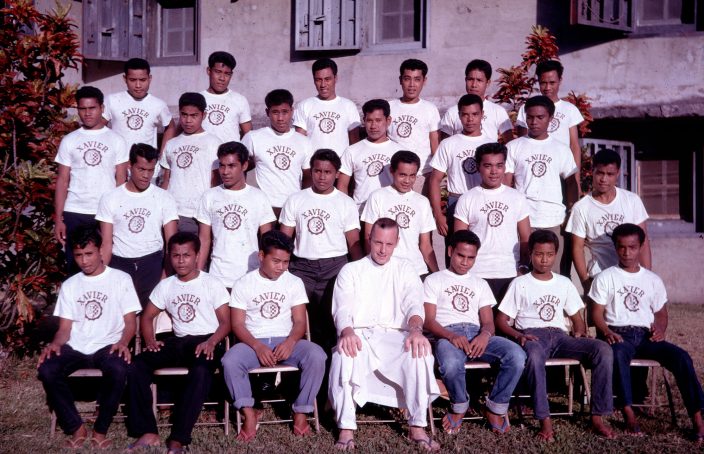“Somewhat”: A Lesson to be Learned
Year ago, when I was teaching at Xavier during my first assignment in Micronesia, my students baffled me with the response they would make to nearly all my questions. Did you understand the algebra lesson we did today? “Somewhat,” they would reply. What about the short story we read last week? Were you satisfied with the ending? “Somewhat” was the usual answer.
Well then, let’s talk about your own family break-up you were telling me about a few days ago. Do you feel that your father was to blame? “Somewhat,” was the response.
The answer infuriated me, although I’d try not to show it. Make up your mind, I’d think to myself in frustration. What is it with these kids, I’d wonder. Why are they so non-committal–forever hedging their bets, unwilling to make a strong decision one way or the other?
I had been brought up in the world of sharp distinctions: distinctions between good and evil, between body and spirit, between saints and sinner, between true and false. The world was so split into so many opposites. “Either it is or it isn’t. No two ways about it!”
The world of sharp distinctions continued through my early education: the principle of contradiction; Greek philosophers discussing what was real and what was not. Then there was history with its countless wars, each with a winner and a loser.
Only when I began reading about world religions did I encounter something that challenged my deep-seated belief that the world was composed of polar opposites. That it wasn’t all dots or dashes, 0-1 in binary coding, up or down. It seems there were people who believed in the “both-and” principle. Perhaps the whole world was not built on the “either-or” principle after all.
I credit my students for introducing me to the world of “somewhat”–a word that seemed to split the difference between opposites. Welcome to the Pacific, the gateway to Asia–the world of “somewhat.”
It was much later, of course, that I began to appreciate the “somewhat”s of these students who seemed to be weaseling out of making strong commitments. When cold-eyed outsiders with tight jaws would come up and demand to know what exactly was to blame for the wife abuse they were determined to stamp out, they would ask me if such-and-such was not the explanation for the problem. I might not use the word “somewhat” exactly, perhaps a synonym I’d picked up. But I found that I just couldn’t give a black or white answer to the question put to me.
By that time I had learned that the world was a far messier place than I thought–much too complicated to describe by that language of opposites that I had learned when I was young. I was happy to fall back on what I once believed to be students’ cop-out: “somewhat.”
So here I am in old age, ever more hesitant to use the old true-or-false response to some of the muddy questions that I’ve had to deal with over the years, more inclined to reply the way my former students would have.
Yet, I find that the questions I present today in writings and talks often provoke the true-or-false response that I have increasingly abandoned over the years. Jaws are clenched and fists tighten, I imagine, as people respond to them. Well, was the early conquest good or evil? Did we lose our cultural identity or not? And in the end were we winners or losers?
Where are those good old students who helped me understand the wisdom of “somewhat?” We could all stand to learn from them today.






